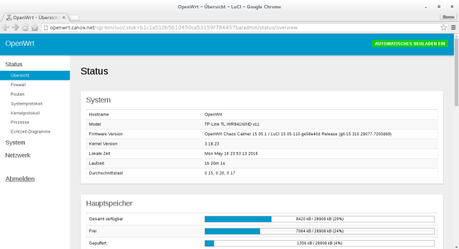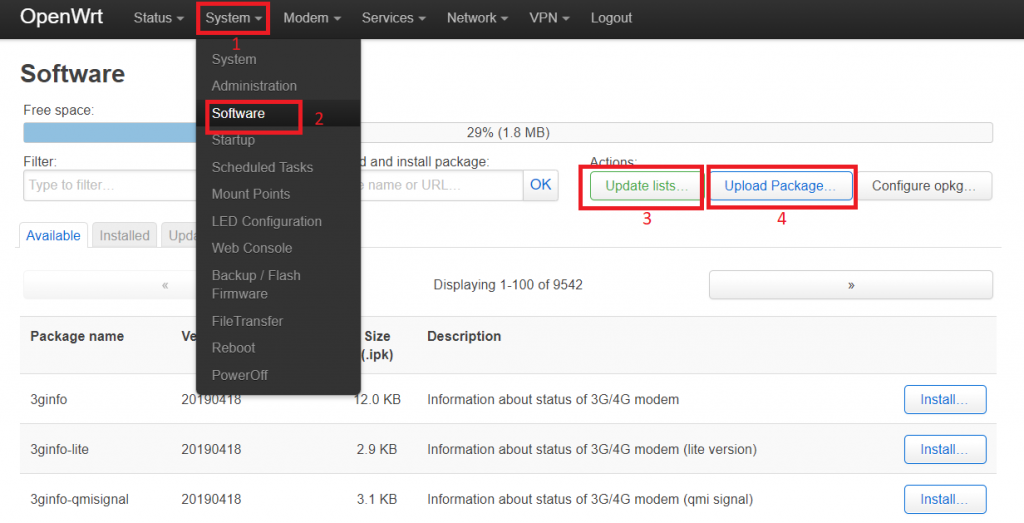

Just because there is an updated version of a given package does not mean it should be installed or that it will function properly. Since it does not (and cannot) overwrite the original (stored in ROM), it must store the upgraded packages in the r/w overlay.īlindly upgrading packages (manually or via script) can lead you into all sorts of trouble. In addition, the opkg upgrade process will consume flash storage space. Although sometimes there may be no issues, there is no guarantee and the upgrade can result in various types of incompatibilities that can range from minor to severe, and it may be very difficult to troubleshoot.

This includes the opkg package manager, which does not have built-in ABI (Application Binary Interface) compatibility and kernel version dependencies verification. Unlike the 'big distros' of Linux, OpenWrt is optimized to run on systems with limited resources. opkg upgrade will not update the OpenWrt version. It is also important to stress that this is distinctly different from the sysupgrade path for upgrading OpenWrt releases (major versions as well as maintenance upgrades). In particular, bulk upgrading is very likely to result in major problems, but even upgrading individual packages may cause issues. It should be avoided in almost all circumstances. Generally speaking, the use of opkg upgrade is very highly discouraged. There's an infobox warning for the OpenWRT User Guide that addresses this topic which sates in part: OpenWrt repos aren't maintained with the intention of keeping end user's packages updated (you're expected to move from release to release by flashing) and opkg does not handle or even check dependencies. As far as I can tell the correct answer to this question is that there is no equivalent for apt upgrade on OpenWrt and no set of commands that will create equivalent functionality.


 0 kommentar(er)
0 kommentar(er)
